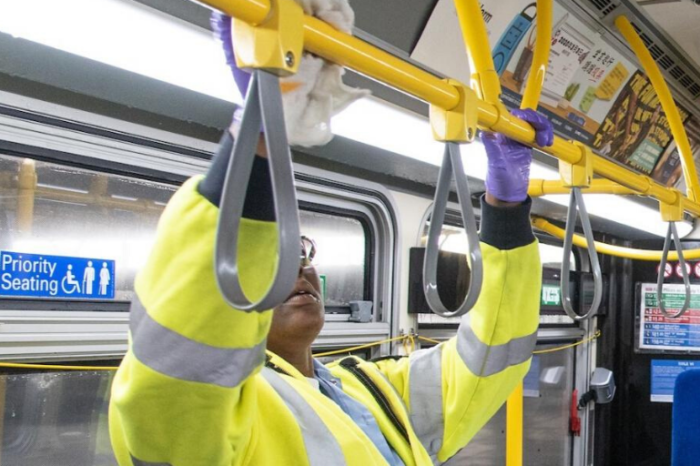Study Highlights Transit Agency Best Practices in Response to COVID-19
Report describes what the MBTA is already doing and recommends additional steps
BOSTON – The MBTA is taking a number of important steps to mitigate risks associated with the coronavirus, but some transit agencies around the country – from Philadelphia to San Francisco – have done more, according to a new study that highlights the best practices of U.S. transit systems in response to COVID-19.
“The MBTA faces a daunting challenge trying to keep the system safe for essential workers, including its own employees, at a time of plummeting ridership and revenue,” said Andrew Mikula, author of “U.S. Transit Systems and COVID-19: How does the MBTA Compare?”
Mikula looks at transit system responses in a range of categories, including the following:
Public relations and transparency
The MBTA posts regular COVID-19 updates online, and the Fiscal and Management Control Board livestreams its meetings and actively solicits public comments. The next step would be for the T to release presentation materials for the meetings in advance, as Bay Area Rapid Transit (BART) does.
The Washington Metropolitan Area Transit Authority (WMATA) posts detailed information about infections among staff online and provides special COVID system maps with information on rail closings. The Southeastern Pennsylvania Transit Authority (SEPTA) even provides a map showing essential services adjacent to stations.
In the absence of some of these more advanced steps, MBTA unions have helped fill the gap by keeping employees engaged and informed on COVID-19.
Worker safety
The MBTA is restricting access to the front of buses to protect drivers.
The Chicago Transit Authority (CTA) is eschewing fare collection procedures to facilitate rear-door boarding. WMATA is giving workers the authority to limit boardings when a vehicle is too crowded to allow for social distancing.
Disinfection
The MBTA is cleaning high-contact areas at stations six times a day and cleaning vehicles at least daily. The T has beefed up its inventory of cleaning supplies and is among the many transit agencies that have added hand sanitizer dispensers in particularly busy stations.
BART now cleans high-contact areas eight times a day and CTA is reconfiguring station waiting areas and gathering places to facilitate social distancing. SEPTA claims to clean each vehicle twice a day and has limited its bus fleet to those with easy-to-clean seat materials such as plastic.
Administration
WMATA has and is implementing an official Pandemic Flu Plan. The MBTA should develop a similar plan to be used in the event of another public health crisis, terrorist threat, or severe weather event.
About the Author
Andrew Mikula is the Lovett & Ruth Peters Economic Opportunity Fellow at Pioneer Institute. Mr. Mikula was previously a Roger Perry Government Transparency Intern at Pioneer Institute and studied economics at Bates College.
About Pioneer
Pioneer Institute is an independent, non-partisan, privately funded research organization that seeks to improve the quality of life in Massachusetts through civic discourse and intellectually rigorous, data-driven public policy solutions based on free market principles, individual liberty and responsibility, and the ideal of effective, limited and accountable government.
Get Our COVID-19 News, Tips & Resources!
Related Content










